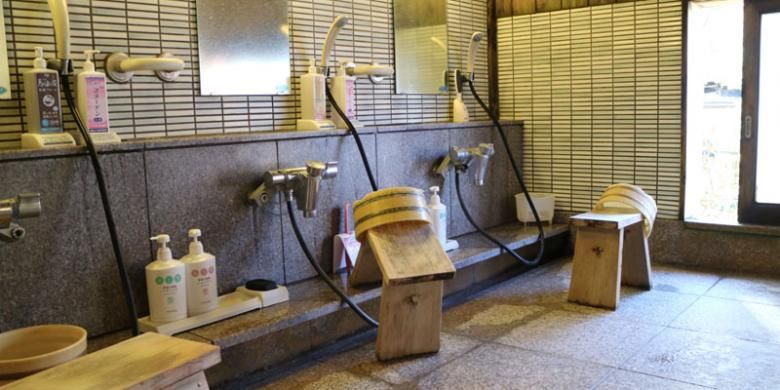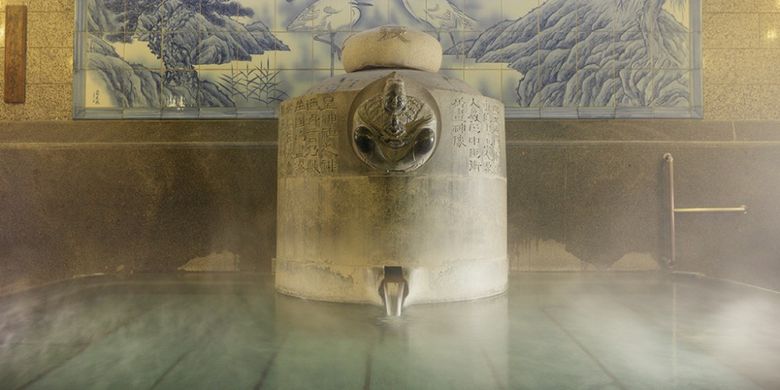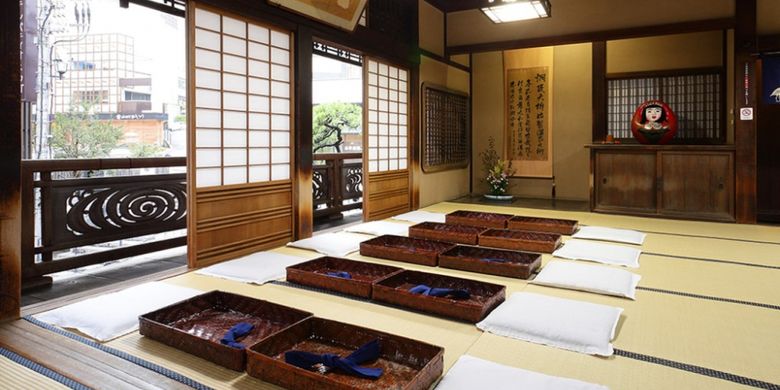Japanese secrets of longevity, hot water is the key
KOMPAS.com – Shinya Hayasaka, a medical doctor and professor at Tokyo City University, has been studying the health benefits of bathing or soaking in “onsen” natural hot springs for more than two decades.
“About 20 years ago, a nurse who provided bathing care at home to an elderly patient, contacted me for advice,” Hayasaka told DW.
“He is concerned that his patients often have high blood pressure, and it is difficult to be sure whether it is safe or not to soak in hot water.”
“At that time no scientific research had been done to answer that question, and I thought science-based evidence was needed,” he said.
Also read: Peek at the secrets of Okinawa’s longevity, the key to diet
Hayasaka’s first paper was published in The Journal of Epidemiology in May 1991.
The paper discussed the need for careful monitoring of older people taking hot baths, but it extended the research into Japan’s daily bath culture.
Natural ‘onsen’ hot springs
Famous for its volcanism, Japan has about 27,000 natural hot springs which in ancient times gave almost everyone access to hot springs and made bathing or bathing an important part of national culture.
Religion also plays a role, with many temples providing bathing facilities for the local community as a form of charity. A number of Buddhist sutras also recommend regular bathing.
Even up to the 1960s, most Japanese homes did not have bathrooms and families gathered in neighborhood public baths, making them a social event.
Even today, when almost every house has a bathroom, there are still several public baths.
“There are three main health benefits of bathing regularly: heat, buoyancy, and hydrostatic pressure,” says Hayasaka.
“Good personal hygiene and hygiene of course also benefit health, but this can be achieved very well with a shower. For the other three, you need to immerse yourself in hot water.”
 Hot spring or onsen facilities at a resort in Kusatsu Onsen, Gunma Prefecture, Japan, Friday (2/12/2016). Before and after a hot bath, visitors are required to clean their bodies in this place.
Hot spring or onsen facilities at a resort in Kusatsu Onsen, Gunma Prefecture, Japan, Friday (2/12/2016). Before and after a hot bath, visitors are required to clean their bodies in this place.The first benefit comes from raising body temperature. Hayasaka determined that the water had to be at least 38 degrees Celsius.
“Soaking in hot water causes the arteries to relax and expand, improving circulation,” says Hayasaka.
“Blood carries oxygen and nutrients to all the cells in your body – as many as 37 trillion, according to some estimates – and carries carbon dioxide and other waste products.
“This boost to circulation is responsible for the restorative feeling you get when you soak in the tub, as if the buildup of day’s fatigue were floating on a cloud of steam,” he adds.
Heat can reduce pain, and warms the body to reduce nerve sensitivity, which can reduce back pain, stiff shoulders, and a variety of other aches and pains.
“Heat also softens the collagen-rich ligaments that surround joints, making them more supple and reducing joint pain,” says Hayasaka.
Get a good night’s sleep
There is also truth in the old adage that soaking in the bath can help ensure a good night’s sleep.
This is supported by research showing that the body’s buoyancy relieves muscle tension and allows the body to relax.
 One of the rooms for a hot bath at Dogo Onsen in Matsuyama City, Ehime Prefecture, Japan.
One of the rooms for a hot bath at Dogo Onsen in Matsuyama City, Ehime Prefecture, Japan.“When you bathe, the water that surrounds your body gives you the third major benefit, exerts hydrostatic pressure on every part of your body,” says Hayasaka.
“It is very beneficial for the legs and lower body, helping to relieve swelling as blood from the swollen vessels returns to the heart and circulation is improved.”
A study Hayasaka conducted with researchers at Chiba University focused on the health benefits for 14,000 elderly people over three years.
The study concluded that people who took a hot shower every day were 30 percent less likely to need treatment than those who showered twice a week or less frequently.
Another study completed earlier this year by scientists in Osaka tracked the health of 30,000 people over 20 years,
The study showed that the risk of serious diseases such as stroke or heart attack was almost 30 percent lower in people who bathed in warm water every day.
Reducing the risk of stroke
Hayasaka’s study shows that regular bathing reduces the risk of stroke or heart attack because heat causes blood vessels to dilate, lowers blood pressure and improves vascular endothelial function.
He added that some studies have also shown that lingering in the bath can also improve mental efficiency and reduce the likelihood of dementia, a finding that Hayasaka says increases blood flow in the brain.
On average Japanese women can expect to live to be 87.45 years old and men will reach 81.41 years.
A German woman will reach an average age of 83.3 years, while a man can reach 78.6 years.
The number of Japanese people aged 100 or older this year exceeded 80,000 for the first time, with women just over 88 percent of the total.
Experts from various medical disciplines agree with Hayasaka’s findings.
“Increased peripheral circulation and stimulation of the parasympathetic nervous system are very good for the health of our vascular and nervous systems,” said Michael A. Persky, a Los Angeles-based ear, nose and throat specialist.
“I also agree that heat helps reduce pain in our joints, tendons, ligaments and muscles, which results in overall body relief,” he told DW.
“Soaking in the warm water relaxes the body and mind and I personally make use of our hot Jacuzzi whenever possible.”
 One of the rooms to relax after a hot bath at Dogo Onsen in Matsuyama City, Ehime Prefecture, Japan.
One of the rooms to relax after a hot bath at Dogo Onsen in Matsuyama City, Ehime Prefecture, Japan.Powerful treatment
Jenelle Kim is the founder of JBK Wellness Labs, based in San Diego, and a practitioner of traditional Eastern medicine.
“Soaking, especially herbal baths containing the right formulations of herbal ingredients that improve blood circulation and qi (vital energy), can be one of the most powerful treatments for the mind and body,” he told DW.
“After all, our skin is our largest organ, and after soaking in a warm bath all our pores are open and ready to accept and absorb the properties of ingredients such as herbs put in water.”
Kim said the infusion, along with elements such as magnesium, calcium, sodium, sulfate and others that occur naturally in hot springs, can act as a powerful home treatment method to calm the mind, calm muscles and joints, improve digestion and rebalance. . body as a whole.
Also read: New Evidence, The Habit of Fast Walking Makes Long Life
Unfortunately, according to Hayasaka, the increasingly rushed Japanese lifestyle leads many to bathe rather than take a relaxing bath at the end of a tiring day, with recent research showing that only 40 percent of people now bathe every day.
And the implications of a shift from tradition to modernity are potentially serious, he agrees, and would include an increasing number of heart attacks and strokes in Japan.